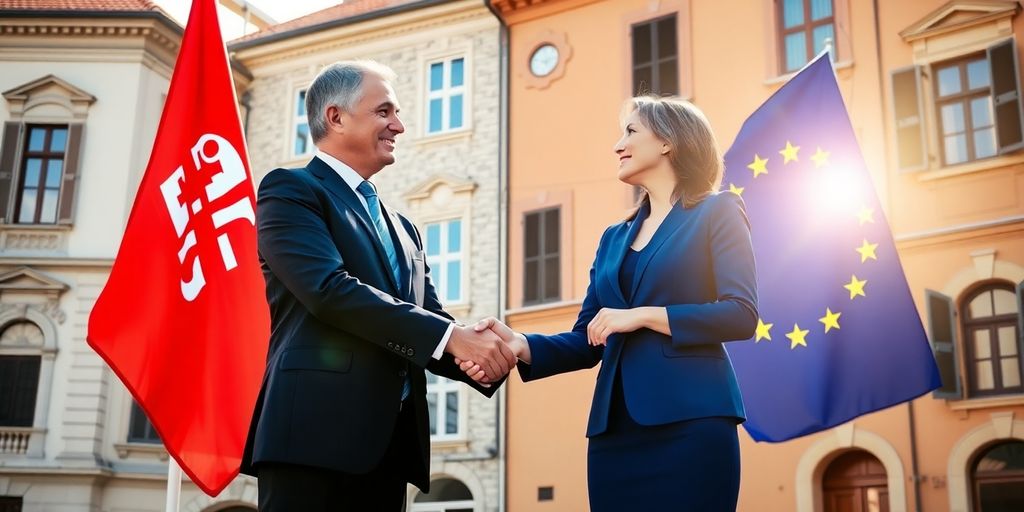Montenegro is making significant strides in its bid to join the European Union, recently closing its seventh negotiation chapter on public procurement. This progress, lauded by EU officials, positions the small Balkan nation as a front-runner in the enlargement process, with a target of becoming the 28th member state by 2028. The renewed momentum for EU expansion comes amid geopolitical shifts in Europe.
Key Takeaways
- Montenegro has provisionally closed seven out of 35 negotiation chapters for EU accession.
- The country aims to become the 28th EU member state by 2028.
- EU enlargement efforts have gained renewed urgency following Russia’s invasion of Ukraine.
Milestones in EU Accession
Montenegro has demonstrated consistent progress in its EU integration journey. The provisional closure of Chapter 5, focusing on Public Procurement, marks a significant achievement. This follows a period of accelerated progress in 2024, during which three chapters were closed after a seven-year hiatus:
- Intellectual Property Law
- Information Society and Media
- Enterprise and Industrial Policy
Earlier closures include:
- Science and Research (2012)
- Education and Culture (2013)
- External Relations (2017)
Montenegro, which declared independence in 2006, applied for EU membership in 2008 and gained candidate status in 2010. Accession negotiations officially began in June 2012.
High-Level Endorsement and Future Aspirations
European Council President Antonio Costa praised Montenegro’s advancements, calling it "one of the finest examples of the EU’s positive enlargement momentum." During a visit to Podgorica, Costa met with Montenegrin President Jakov Milatovic, who reiterated the country’s ambition to join the EU by 2028. This ambitious timeline is supported by a commitment to continued reforms.
Montenegro, with a population of just over 600,000, has been a NATO member since 2013. Its proactive stance on EU integration, alongside Albania, places it ahead of other Western Balkan aspirants like Serbia, Bosnia, Kosovo, and North Macedonia.
Financial Support and Geopolitical Context
In addition to closing negotiation chapters, Montenegro has also received pre-financing under the EU Growth Plan. This financial support underscores the EU’s commitment to the region’s economic development and integration. The renewed emphasis on EU enlargement is largely driven by the geopolitical imperative to stabilize the Western Balkans, particularly in the wake of Russia’s full-scale invasion of Ukraine in 2022. EU leaders view enlargement as a crucial investment in the stability, peace, and prosperity of the Western Balkans and Europe as a whole.
Sources:
- Montenegro has closed the seventh chapter of negotiations on EU accession. | Ukraine news, mezha.net.
- The European Council president praises Montenegro’s advance on the path to joining the EU, AP News.
- Are Albania and Montenegro on the fast track to EU membership?, Atlantic Council.
- Montenegro’s fight for EU membership amid Serbian revanchism, New Eastern Europe.
- EU provisionally closed chapter five in accession negotiations with Montenegro, European Interest.






